Search Articles
Search results
Displaying 161 - 180 of 1217
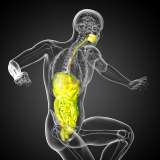
Healthy Lifestyle,
Science & Research
New microbiome research reveals exercise may impact gut physiology
October 3, 2023
|
4 min read
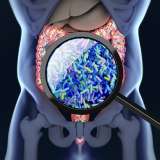
Science & Research
Discrimination alters brain-gut ‘crosstalk,’ prompting poor food choices and increased health risks
People frequently exposed to racial or ethnic discrimination may be more susceptible to obesity and related health risks in part because of a stress response that changes biological processes and how we process food cues. These are findings from UCLA researchers conducting what is believed to be the first study directly examining effects of discrimination on responses to different types of food as influenced by the brain-gut-microbiome (BGM) system.
October 2, 2023
|
5 min read
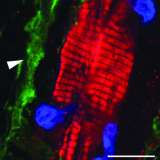
News about UCLA Health,
Science & Research
Researchers uncover critical clues about the origin of heart arrhythmias
September 28, 2023
|
3 min read
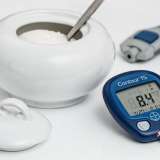
Science & Research
Pharmacist-led intervention can improve medication adherence among Latinos with type 2 diabetes
UCLA-led research suggests that diabetes control can significantly improve for Latinos when a pharmacist implements an intervention that addresses these patients’ barriers to medication adherence.
September 28, 2023
|
3 min read

Cancer,
Science & Research
Dr. Mina Sedrak receives $3.4 million grant from National Institutes of Health
Dr. Mina Sedrak has received a five-year, $3.4 million grant from the NIH to examine how exercise and certain drugs may be able to slow chemotherapy-related accelerated aging seen in breast cancer survivors.
September 27, 2023
|
2 min read
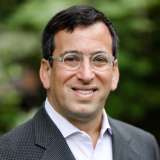
Cancer,
Science & Research
Dr. Edward Garon receives $3.5 million from NIH to personalize immunotherapy based on individual patients’ mutations
Dr. Edward Garon was awarded two grants totaling over $3.5 million from the National Institutes of Health to help improve outcomes for patients with early and advanced stages of non-small cell lung cancer.
September 27, 2023
|
2 min read

Science & Research
Study in mice shows how chronic caffeine consumption alters sleep pattern and blood flow
September 25, 2023
|
2 min read
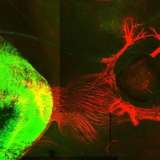
Science & Research
Scientists regenerate neurons that restore walking in mice after paralysis from spinal cord injury
In a new study in mice, a team of researchers uncovered a crucial component for restoring functional activity after spinal cord injury, showing that re-growing specific neurons back to their natural target regions led to recovery, while random regrowth was not effective.
September 21, 2023
|
4 min read
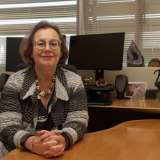
Science & Research
Tai chi as mind-body medicine? A UCLA Health psychiatrist aims to take the practice nationwide
September 20, 2023
|
4 min read

Science & Research
3 tales of determination: Incoming UCLA medical students overcome obstacles on path to becoming doctors
September 20, 2023
|
3 min read
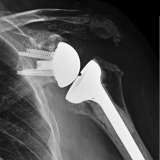
News about UCLA Health,
Science & Research
Engineered compound shows promise in preventing bone loss in space
September 18, 2023
|
4 min read

Science & Research
Living in a disadvantaged neighborhood affects food choices, weight gain and the microstructure of the brain
Research from UCLA David Geffen School of Medicine shows living in a disadvantaged neighborhood can affect food choices, weight gain and even the microstructure of the brain.
September 15, 2023
|
4 min read
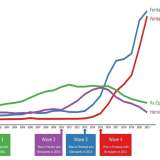
Science & Research
Overdose deaths from fentanyl laced stimulants have risen 50-fold since 2010
The proportion of US overdose deaths involving both fentanyl and stimulants has increased more than 50-fold since 2010, from 0.6% (235 deaths) in 2010 to 32.3% (34,429 deaths) in 2021. This rise in fentanyl/stimulant fatalities constitutes the ‘fourth wave’ in the US’s long-running opioid overdose crisis
September 13, 2023
|
3 min read
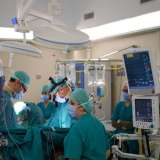
Science & Research
UCLA research suggests that heart transplantation is safer for adults with single-ventricle CHD than previously thought
Among adult congenital heart disease (CHD) transplant recipients, single-ventricle physiology correlated with higher short-term mortality. But 10-year conditional survival was similar for biventricular and most single-ventricle CHD patients, and better for biventricular CHD patients compared to non-CHD heart transplant recipients.
September 11, 2023
|
3 min read
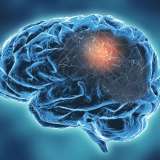
Science & Research
Stereotyped, devalued and shunned: Experts address the stigma of Parkinson’s disease
Even the best treatment approaches for Parkinson’s disease are inadequate if they do not address patients’ feelings of social rejection, isolation, loneliness and other psychosocial effects of stigma, according to a report from experts specializing in Parkinson’s and other movement disorders.
September 11, 2023
|
4 min read

Cancer,
Science & Research
Using personalized medicine to target gynecological cancers
In this interview, Dr. Ritu Salani talks about the latest research advances for gynecologic cancers and how women can help reduce their risk and help with the early detection of these cancers.
September 11, 2023
|
5 min read

Cancer,
Science & Research
Dr. Melissa Lechner receives grant from Doris Duke Foundation
Dr. Melissa Lechner has received a $495,000 grant from the Doris Duke Foundation to help develop ways to minimize harmful immune reactions some people diagnosed with cancer experience when undergoing immunotherapy treatment.
September 8, 2023
|
2 min read

Cancer,
Science & Research
Researchers awarded $2.5 million to develop brain cancer treatment
A multidisciplinary team of investigators from the UCLA Jonsson Comprehensive Cancer Center was awarded a $2.5 million Translational Team Science Award from the Department of Defense to develop a tailored treatment for glioblastoma, a deadly brain tumor with limited treatment options.
September 5, 2023
|
2 min read
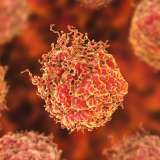
Cancer,
Science & Research
For prostate cancer, PSMA imaging helps diagnosis, staging and treatment decisions
UCLA a leader in PSMA imaging in the U.S.
September 5, 2023
|
4 min read
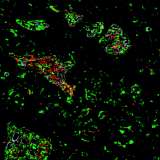
Cancer,
Science & Research
Study could help explain why certain brain tumors don’t respond well to immunotherapy
A study led by researchers at UCLA sheds new light on why tumors that have spread to the brain from other parts of the body respond to immunotherapy while glioblastoma, an aggressive cancer that originates in the brain, does not.
September 1, 2023
|
5 min read